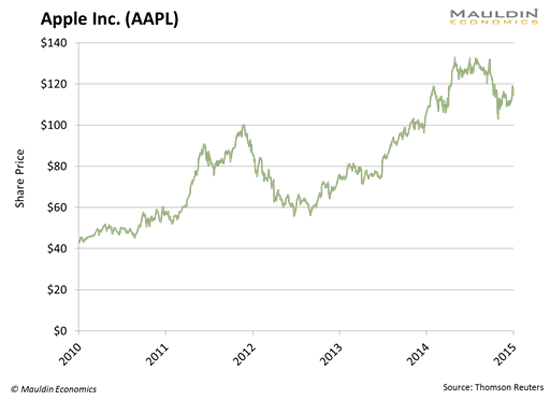
Back when I was in business school, the PC manufacturers were go-go football stocks. Bull market, dude.
There was Dell, Hewlett-Packard, Compaq, and Gateway, which used to sell its computers in a Holstein cow-pattern box. Apple was making Macs but had a much smaller market share than it does today.
Business mags like Fortune and Forbes fawned over Michael Dell—how he had achieved this “mass customization” ideal in his manufacturing process.
You could pick out what kind of processor you wanted, what kind of hard drive, what kind of monitor, plus a few other options, and your tailor-made computer showed up at your doorstep in four to five days.
Eventually, though, commoditization replaced customization, PC margins went to zero, and that was the end of that.
Today, it’s hard to imagine the PC business any other way. Nobody puts a lot of thought into what kind of PC they are going to get. They’re all the same. Now people call their PC a “box” and the PC manufacturers “box-makers.” Like, there is no value added at all.
Dell went private. HP and Compaq merged, defensively. Gateway is gone. The idea that PCs were ever a growth business for anyone is crazy… right?
And yet we have these smartphones now, extremely powerful devices that are essentially miniature computers.
If You Own Apple Stock Today…
Innovation in the smartphone business has been very rapid, though it has slowed down in recent years, and the latest changes have been incremental. Apple’s 40% margins aren’t sustainable.
On the other hand, Apple has managed to keep its margins persistently high in every product line, from iPods to iMacs to iPhones—partly because of superior design, partly because of superior marketing. They have turned the phone into a status symbol.
If you own Apple stock, you are betting that:
- Apple will maintain or even increase its already huge market share in smartphones.
- Nobody will ever build a better mousetrap.
- The smartphone will resist the commoditization that has happened to pretty much every piece of technology.
Seems to me like there’s only one way for things to go right and lots of ways for things to go wrong.

I have no position and no particular axe to grind. While I don’t think the stock is especially overvalued, that doesn’t mean it can’t go down.
Besides, phones are different from computers. With the way wireless plans work in the US, people don’t bear the economic cost of the phone, at least not all at once. So the pricing pressure isn’t there like it was with PCs, which went from $2,000 to $600-$800 in the span of a few years.
But Apple has very much turned into a one-trick pony (60% of revenue comes from handsets) whose margins are perhaps not as bulletproof as we think. A $700 billion market cap rests on the existence of these margins.
The point here is, if you own this stock, directly or indirectly, to make you uncomfortable.
I probably wouldn’t short it, though. It’s hard to break an ankle jumping off a pizza box.
Clever Business Strategy—But Is It Clever Enough?
In any industry, there is usually only one Walmart. There isn’t room for two firms like that to survive.
In luxury goods, it’s different. There are 25-30 major brands of Swiss watches, and they each carve out a profitable existence.
Apple gets to have it both ways. They mass-produce a luxury good and make luxury company margins. That’s how they got a market cap of almost a trillion dollars. Very difficult to pull off. But they did it.
I have an iPhone. I have had the last few iterations, along with all the iOS updates. It is essentially the same phone. Let’s be truthful—Apple is not truly innovating at this point, just tinkering around the margins.
Staying on top is hard. But there is always the car!












